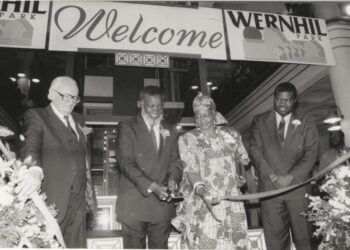
By Paulo Coelho
If the circus is coming to town and you paint a sign saying “Circus Coming to the Showgrounds Saturday,†that’s advertising.
If you put the sign on the back of an elephant and walk it into town, that’s promotion.
If the elephant walks through the Mee Triple N’s flower bed and the Namibian writes a story about it, that’s publicity.
If you get the Tripple N to laugh about it, that’s public relations.
If people come to the circus, you walk them through the booths, answer their questions, and they spend a some bucks, that’s sales.
But if you planned the entire thing? That’s marketing.
Marketing is often misunderstood, even by us professionals in the game. It’s not just branding, advertising, logos or social media noise. The strategy gets your ideal customer to know you, like you and trust you enough to buy from you. The tools we associate with marketing, which usually comprises ads, campaigns, and social posts, well, there are just tactics. But strategy? That’s the real engine behind brand growth.
And if you want your business to grow with intention, it needs a marketing plan just as much as it needs a business plan.
Winging it is not a strategy!
Professionals never wing it. Pilots don’t. Surgeons don’t. Soldiers don’t. But somehow, entrepreneurs think they can “just figure it out†as they go, and I am totally guilty of this in a few of my businesses.
That’s why most businesses stay stuck in a loop of random activity and inconsistent results. A marketing plan isn’t just a nice-to-have. It’s your flight plan. Without it, you just hope to arrive at your destination by chance. With it, you increase your odds of success dramatically.
But not just any plan. Not the 40-page document no one reads! The same one that is in my office drawer gathering dust, or sitting under a pile of old newspapers. You need something simple, practical, and built to drive action! The kind of plan that lives in your calendar, not in your drawer.
Leverage is the name of the game
As a business owner, your greatest constraint isn’t money; it’s time. You can always make more money. But time? Once it’s spent, it’s gone. I always love to say, “Waste my money, not my time. I can make money; I CANNOT make time!â€
This is where leverage comes in. Instead of spending your energy on incremental improvements (like negotiating a 5% better rate from a supplier), you should focus on high-impact moves. And nothing gives you more leverage than marketing.
A 10% improvement in your marketing can lead to a 30%, 50% or even 100% improvement in your revenue. That’s exponential, not incremental. That’s marketing leverage!
Vilfredo Pareto, an Italian economist you’ve probably never had a beer with, gave us the 80/20 principle: 80% of outcomes come from 20% of actions. In business, marketing sits firmly in that top 20%.
Your brand promise is the foundation
But here’s the catch: great marketing doesn’t start with a flashy campaign. It begins with a brand promise.
A brand promise is a commitment you make to your customers about what they can expect when they interact with your brand. It’s the emotional handshake you do when you meet. The problem is, too many brands make promises they’re not built to keep.
And when that happens, you don’t just lose a sale. You lose trust.
The world’s biggest brands, such as Apple, Toyota, Samsung, are successful because they deliver on their promise consistently. Apple doesn’t promise innovation and then give you average. Toyota doesn’t promise reliability, and it breaks down every month. Your business, too, needs to be operationally aligned with your promise. If you say you offer premium service, then your systems, your people, and your delivery must reflect that. Every. Single. Time.
Think like a brand. Act like a human.
Musa Kalenga, one of Africa’s leading marketers, says it best:
“For me, the simplest explanation of brand building is to define the promise that you’re making to the different stakeholders, and then to stay true to that promise and build stories that amplify it.â€
Timothy Maurice Webster champions the mantra: “Think like a brand. Act like a human.†In today’s market, that’s everything.
Consumers don’t just want polished; they want that connection and relevance, brands that understand their needs and behave with empathy and authenticity, brands that feel human.
So, when you’re building your marketing plan, start with the promise. Build the systems to deliver on it. And make sure every tactic, every post, every piece of comms is rooted in something real.
The wrap-up
Marketing isn’t noise. It’s your plan for attention, trust, and conversion.
A business plan shows where you’re going.
A marketing plan shows how you’ll get people to come with you.
And your brand promise? That’s what makes them want to stay.
So, don’t wing it. Don’t outsource your brand’s voice to chance.
Get intentional. Get strategic.
Think like a brand. Act like a human. And build a business that delivers exactly what it promises.
*Paulo Coelho is a Brand Manager | Entrepreneur | Storyteller











